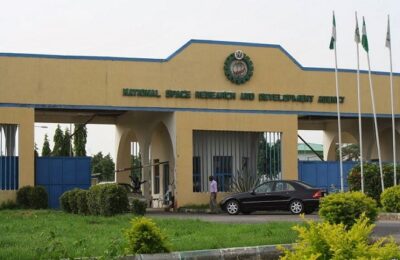The recent signing of a memorandum of understanding between the governmental agency NASRDA and the legal firm of Olisa Agbakoba and co to guide the implementation of the agency’s programme is a welcome development and it is a process which time has come considering its importance.
The last two decades have witnessed the largest changes to the space establishment of the world and Nigeria in general.
We have seen more nations established their own legal frameworks and diversify their space technology from militarization which hitherto was used to demonstrate their potentially destructive capabilities for the world to see.
What is more is that space exploration is no more a domain reserved for wealthy nations alone. Today, private stakeholders have also earned seat at the table. These private stakeholders and entities have disrupted a market long dominated by governments alone.
One thing is clear, space has matured into a domain driven by greater number of actors – be it governments, private entities or non-traditional actors-and its now more congested, contested, and competitive than ever before.
We no longer needs a telescope to see the critical importance of space in our country, but while more attention has been paid to the geostrategic and economic importance of space, perhaps the most foundational area has been largely left at the backburner: space governance, in the current national political climate, once adequate multilateral agreements and treaties have repeatedly proven ineffective at managing national space activities.
The current national space governance framework has been slow to take evolving state and industry practices as well as technological changes into considerations, namely around issues of celestial resource use and space militarization.
The growing number of non-traditional players warrants a need for additional, if not revised legal measures to ensure stronger national space governance and the safety and sustainability of space for the future of our country ahead.
To understand the future ahead, however, we need to consider the state of space governance now in the country through the implementation of a competently put in placed legal frameworks that are put in place by NASRDA in collaboration with the experts in the legal field in the country and that is what the national space research and development agency has just achieved with the signing of the collaborative memorandum of understanding with the renowned legal firm, Olisa Agbakoba and company.
The MOU, is to outline the current legal systems, which collectively comprise the national space governance systems while critically identifying and explaining the deficiencies within these systems.
In doing so, we as a nation would have shown the possible path to stronger national space governance in our country to ensure the sadty and sustainability of space for the future ahead.
The term national or global space governance refers for the benefit of those fresh to this term, but for the purpose of this write up to the collection of the international, regional, or national laws, as well as regulatory institutions and actions, manners, and processes of governing or regulating space-relating affairs or activities in Nigeria.
It also included the instruments, institutions, and mechanisms, national laws, regulations, technical standards and procedure, codes of conduct and confidence building measures between space-fairing actors, all of which are discussed, formulated and implemented at various levels of governments.
Collectively, these measures would allow for the formulations, compliance, monitoring and enforcements of space activities in the country.
Generally, our national space laws fall into two basic categories:
。Building or normative instruments such as treaties, standards, and national regulations.
。Non-binding agreements which are used to convey voluntary, non-normative and/or aspirational ideals that may be too difficult to achieve national consensus. These two types of agreements largely works in tandem to make up the national space governance framework that exists today.
Unfortunately, these means that low or middle income countries like Nigeria have for a long time been largely excluded from writing the rules that are still in place over the half a century.
Furthermore, the five fundamental foundational united nations (UN) space treaties-which makes up the backbone of the global space governance frameworks are products of their time, which explains their particular emphasis on preventing colonization and militarization of space.
With the rapid pace of space developments, however, the future of space governance will need to encompass additional threats brought on by novel changes to the global order. This will prove to be a tricky balancing act between encouraging democratization, boosting commercialization, and containing militarization.
The signings of the MOU signalled NASRDA’s commitments and that of its director-general, Dr. Halilu Ahmed Shaba to the protection of the nations space programmes. The collaboration established between NASRDA and the the legal firm on the legal frameworks are aimed at ensuring a very effective space programme with a legally binding regulatory framework that would help the country keep pace with its peers in the global space race and global space standards.
The partnership and forum must be praised for its efforts in promoting the interest of the agency and it is symbolic in the exchange to ensure that the impact of the Nigerian space programmes is felt by all Nigerians.
The need for a formidable legal framework in the effective implementation of the Nigerian space programme is a reform programme of its present director-general, Dr. Halilu Shaba which time has come.
– Musa Wada writes from Abuja.




